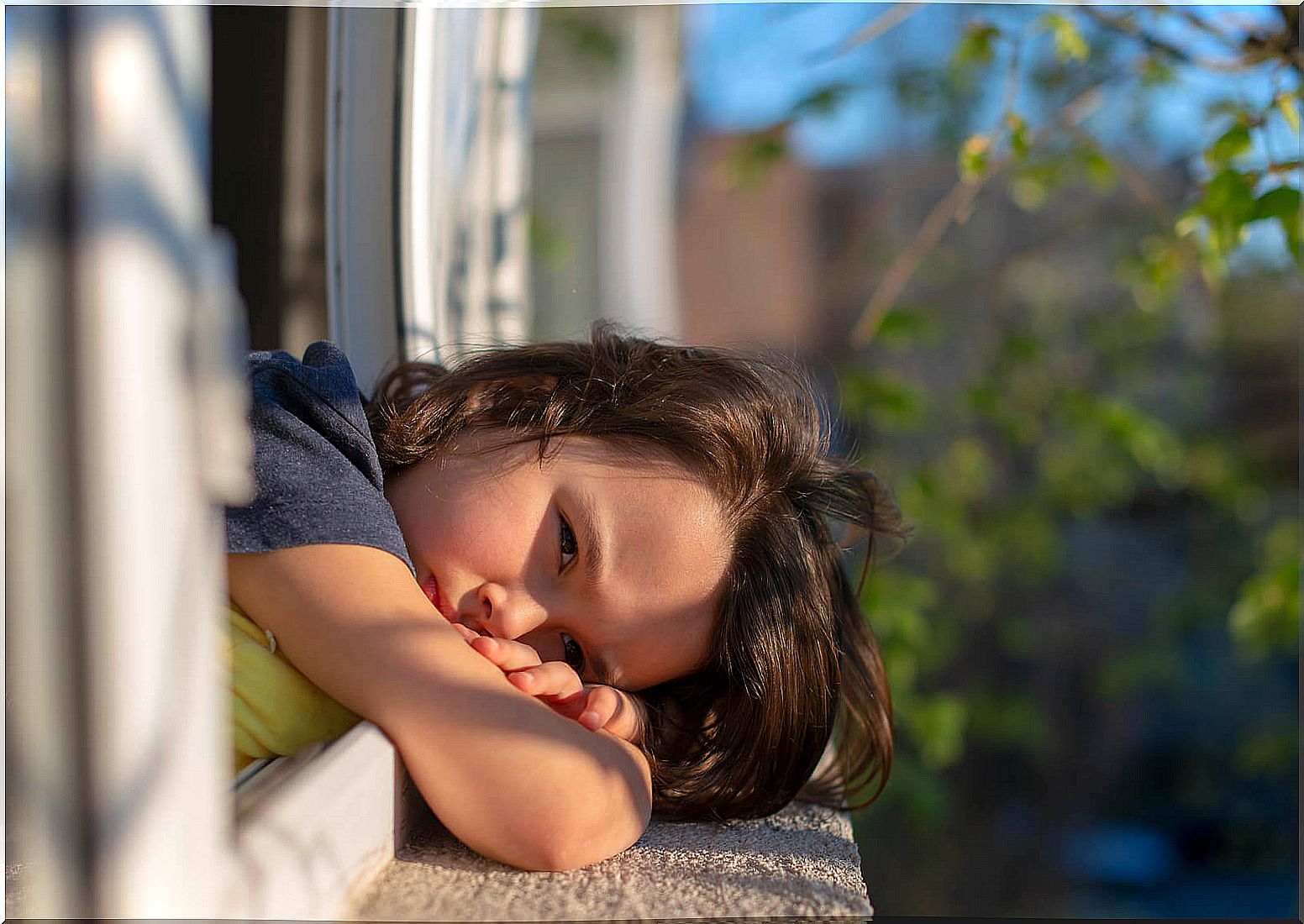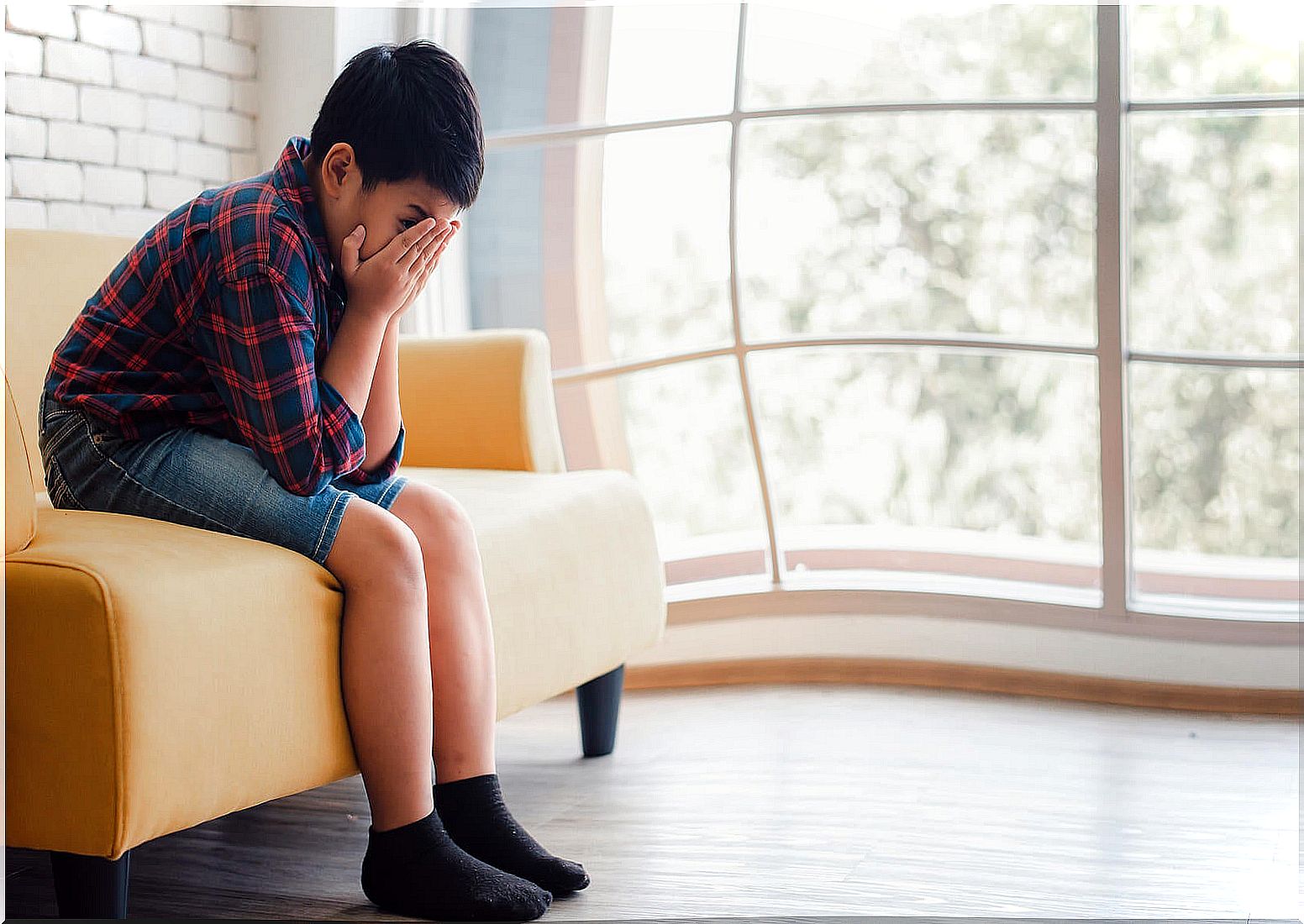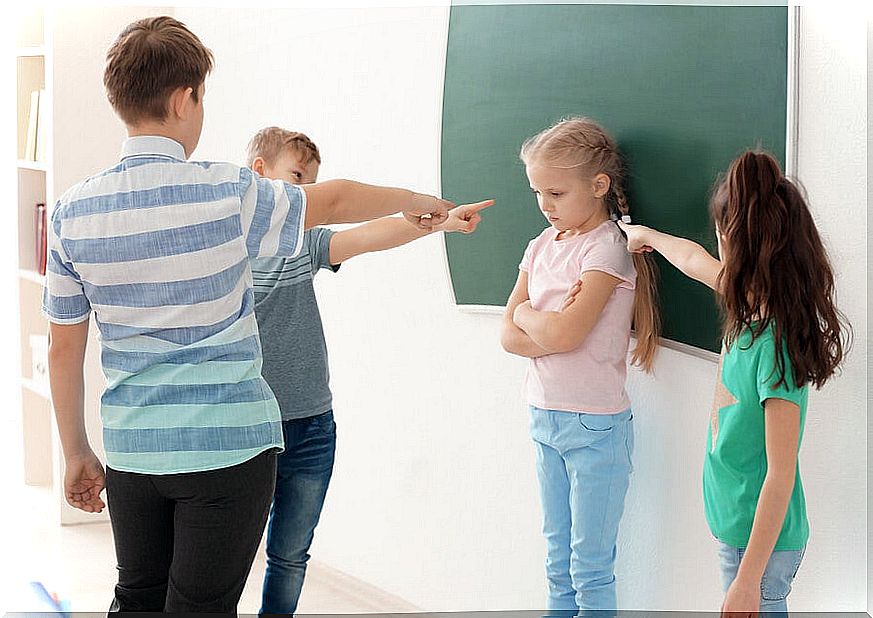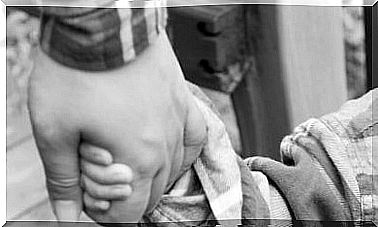The Inferiority Complex In Children

The inferiority complex was a term coined by Alfred Adler, an Austrian physician and psychotherapist, to refer to the constant and unconscious feeling that some people experience when they consider themselves less than others. It is a very painful feeling that, in general, appears in childhood and significantly and negatively affects the development of children who present it.
Do you want to know more about this concept so widely used in the field of psychology? Do you want to know what are the main causes, symptoms and possible treatment of this complex? Pay attention to what we tell you in the next few lines.

The inferiority complex in children
Childhood is a very delicate stage in which children need a lot of love, care and attention to develop their abilities and exploit their potentialities. However, when children grow up in an unsuitable environment or have experiences that make them feel insecure, they can experience an inferiority complex.
Thus, according to Alfred Adler, there are several factors that make children more at risk of feeling inferior to the rest, among which are the following:
- Present some type of physical, mental or sensory disability.
- Growing up with neglectful parents.
- Having parents with an authoritarian educational style.
- Having overprotective parents.
Symptoms of the inferiority complex
The main symptoms that can be observed in children with an inferiority complex are
- Low self – esteem.
- Excessive shyness.
- Social withdrawal.
- High sensitivity, especially towards criticism.
- Lack of self-confidence.
- Exaggerated fear of making mistakes.
- Need for constant approval.
- Need to please others.
- Feeling of worthlessness compared to others.
- Tendency not to show their own criteria.
- Difficulty making decisions.
- Tendency to submission and perfectionism.
- Difficulty recognizing one’s own merits.
All this, obviously, affects the normal development of children, both in the short and long term. In fact, this wrong and negative idea that they create about themselves can limit them throughout their lives, therefore, it is considered important to treat the inferiority complex as soon as possible, as soon as the first symptoms are detected.
Possible treatment
When you suspect that a child has an inferiority complex, the best thing to do is ask for professional help, contacting a child psychologist, so that he or she can help the child overcome his problem and thus avoid the appearance of complications. greater.
Psychotherapy is considered one of the most effective methods of treating the inferiority complex. In these cases, interventions will be based primarily on cognitive restructuring, with the intention of modifying false beliefs and inappropriate thoughts and on social skills work.
In addition, mothers, fathers and teachers of children with this type of complex should be actively involved in the treatment and help the little ones by taking actions such as the following:
- Positively reinforce their abilities and skills.
- Encourage group activities.
- Take time for communication and expression of emotions.
- Analyze the reasons for failures and mistakes, seeing them as an opportunity to learn.
- Avoid comparisons with other children.
- Avoid being overly demanding.

The importance of treating the inferiority complex in childhood
The inferiority complex usually appears in childhood, when people are most vulnerable. If this complex is not properly treated at an early age, then the feeling of insecurity and disability will be permanent, which will make these children become adults with a tendency to develop many other psychological, emotional and social problems.
Therefore, if you think that your child may have an inferiority complex with respect to others, you should seek the necessary help so that this does not lead to a chronic problem that affects his present and future quality of life.










